Biological Evolution: Unity and Diversity

Educators and Parents, Sign Up for The Cheat Sheet
Weekly updates to help you use Science News Explores in the learning environment
Thank you for signing up!
There was a problem signing you up.
-
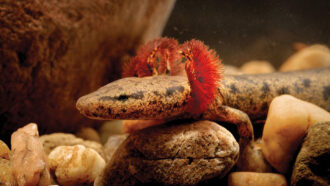 Animals
AnimalsLiving mysteries: This critter has 38 times more DNA than you do
The genomes of salamanders are bloated with genetic “parasites.” That extra DNA slows down their lives and strands them in perpetual childhood.
By Douglas Fox -
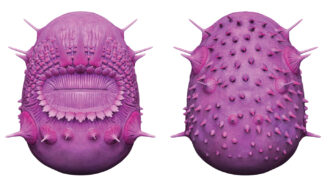 Fossils
FossilsBizarre ancient critter has spines but no anus
The spiny discovery moves this minion lookalike off a distant limb on the human family tree.
By Anna Gibbs -
 Earth
EarthNot one, but two asteroids might have ended the age of dinosaurs
A craterlike structure found off the coast of West Africa might have been formed by an asteroid that struck around the time dinosaurs went extinct.
By Nikk Ogasa -
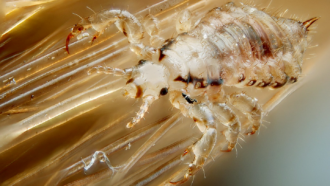 Animals
AnimalsSome ecologists value parasites — and now want a plan to save them
Parasites get a bad rap as disease-causing, unwelcome guests on other organisms. But parasites are also imperiled, and scientists don’t want to lose them.
-
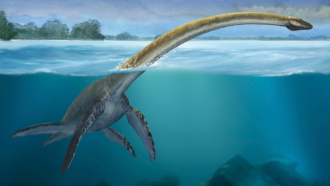 Animals
AnimalsAnalyze This: Bulky plesiosaurs may not have been bad swimmers after all
Long-necked plesiosaurs were thought to be slow swimmers. But new research suggests the animals’ large size helped them overcome water resistance.
-
 Animals
AnimalsHow boa constrictors squeeze their prey without strangling themselves
Tracking boas’ ribs in X-ray videos revealed the snakes’ squeezing secrets. It’s the latest Wild Things cartoon from Science News Explores.
By Maria Temming and JoAnna Wendel -
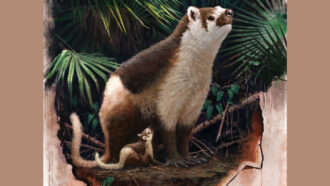 Fossils
FossilsAncient ‘ManBearPig’ mammal lived fast — and died young
Developing in the womb for a while — but being born ready to take on the world — may have helped post-dinosaur mammals rise to dominance.
-
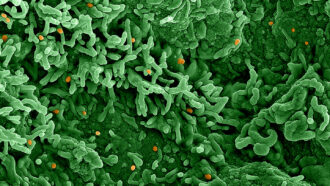 Health & Medicine
Health & MedicineExplainer: What is mpox (formerly monkeypox)?
Once rare, the viral disease monkeypox exploded onto the global scene for the first time in 2022.
By Tina Hesman Saey and Janet Raloff -
 Health & Medicine
Health & MedicineDogs and other animals could aid the spread of monkeypox
Now that monkeypox has spread to a dog, researchers fear other species could help the virus become widespread outside of Africa for the first time.
-
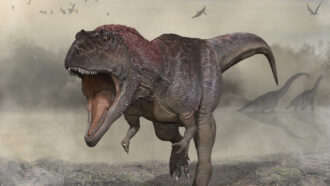 Fossils
FossilsThis big dino had tiny arms before T. rex made them cool
A predecessor to Tyrannosaurus rex, Meraxes gigas had a giant head. But the muscularity of its puny arms suggests those limbs served some purpose.
-
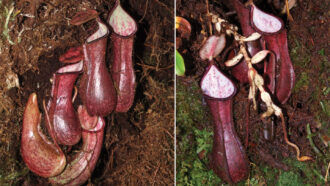 Plants
PlantsThis pitcher plant lures insects into underground deathtraps
Scientists didn’t expect the carnivorous, eggplant-shaped pitchers to be sturdy enough to grow embedded in the soil.
By Meghan Rosen -
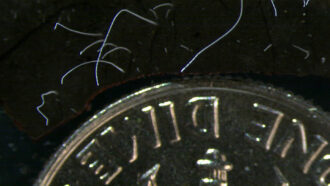 Microbes
MicrobesThis giant bacterium lives up to its name
The newly discovered Thiomargarita magnifica is about the size of your eyelash and is surprisingly complex.